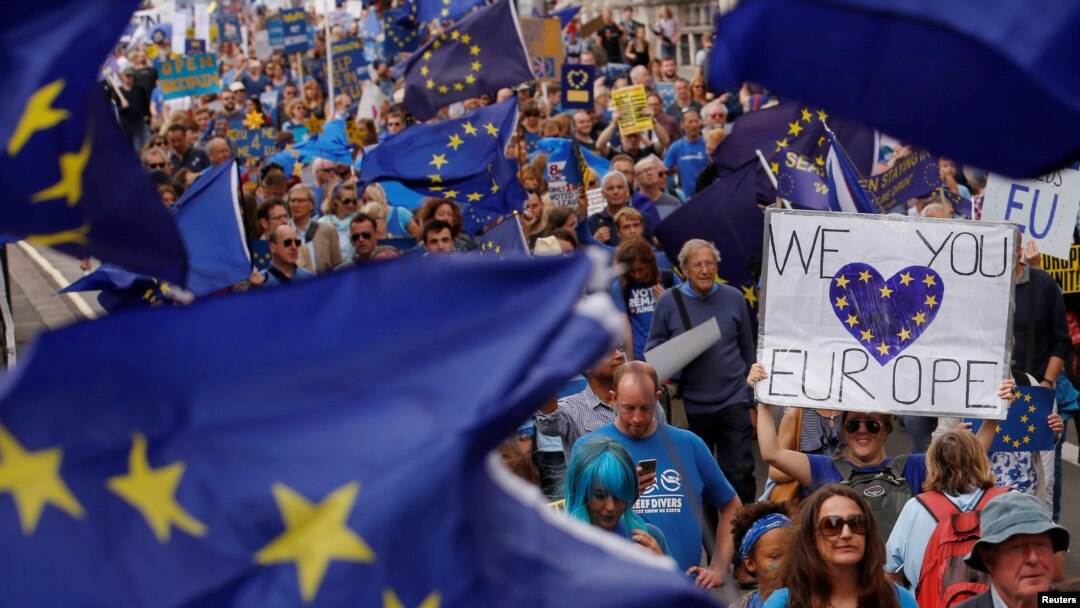European Union voters in France, Germany, Italy and Greece think their countries are heading in the wrong direction, but there is not yet any Europe-wide inclination to follow Britain toward exiting the bloc, according to a poll published Thursday.
Britain's shock June 23 Brexit vote, which was praised at the time by then-U.S. presidential candidate Donald Trump as a "miracle," has raised questions about the future of post-World War II attempts at European integration.
After Brexit and Trump's victory in the United States, investors are watching for any sign that popular discontent is on the rise ahead of 2017 elections in France and Germany, and a likely vote in Italy.
A WIN/Gallup International online survey of 14,969 people showed voters were unhappy across the European Union but that support for the EU remained above 60 percent in most of the biggest member states.
The poll showed 89 percent of voters in Greece thought their country was heading in the wrong direction. The figure was 82 percent in France, 79 percent in Italy and 62 percent in Germany.
While EU voters were clearly discontented, there was only a small rise in the number of people who said they would vote for an exit: 36 percent, up from 33 percent, across the 15 European countries including Britain that were surveyed.
Foundations 'shaken'
The percentage of people in Germany, France and Belgium who would vote to leave fell from a year ago. Finland and Greece saw an increase in support for leaving — up to 40 percent from 29 percent and up to 46 percent from 38 percent, respectfully.
"2016 saw the EU foundations severely shaken," said Johnny Heald, managing director of ORB International, who did the U.K. polling. "What stands out is the overwhelming view from EU citizens that their countries are heading in the wrong direction — most noticeable in France and Greece — which makes fertile ground for right-wing populist parties."
Across Europe, 60 percent said they would like to have fewer migrants and refugees. In Greece, 86 percent wanted fewer, while in Italy the figure was 75 percent and in Germany 64 percent.
The survey was carried out November 25 to December 7, before the December 19 truck attack on a crowded Christmas market in Berlin.
The right-wing Alternative for Germany party, which was created three years ago in opposition to eurozone bailouts, laid the blame for the attack on German Chancellor Angela Merkel.



